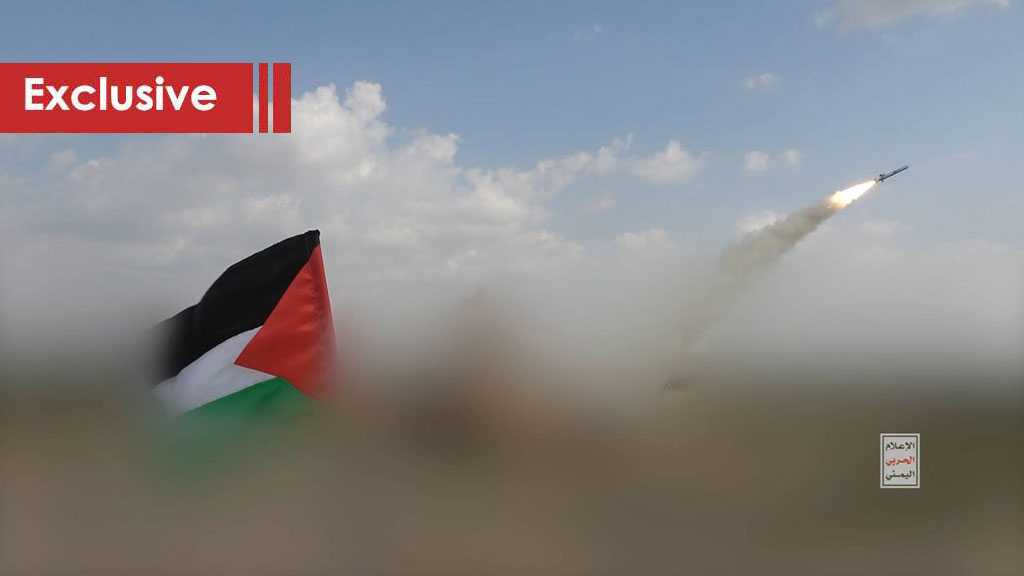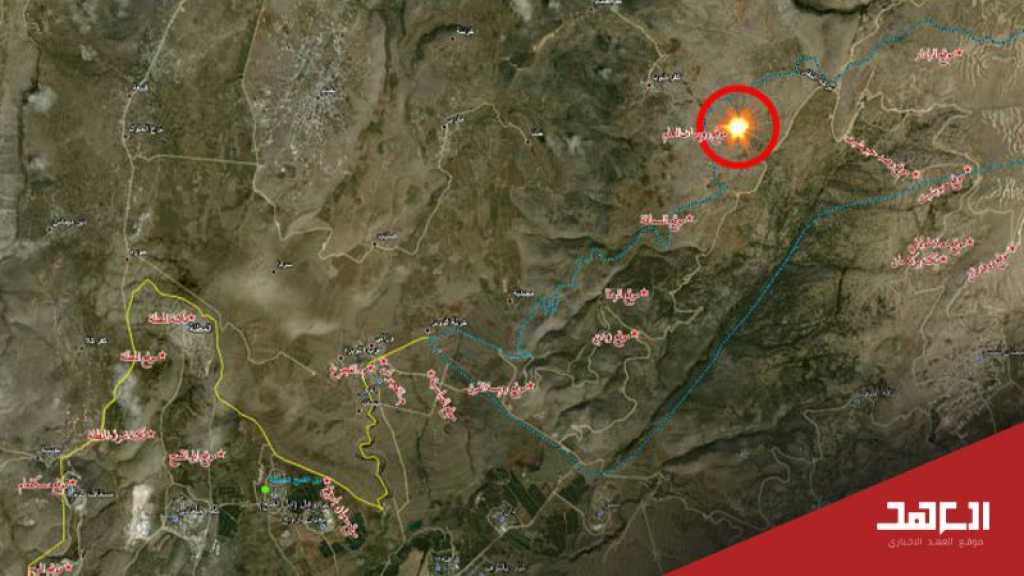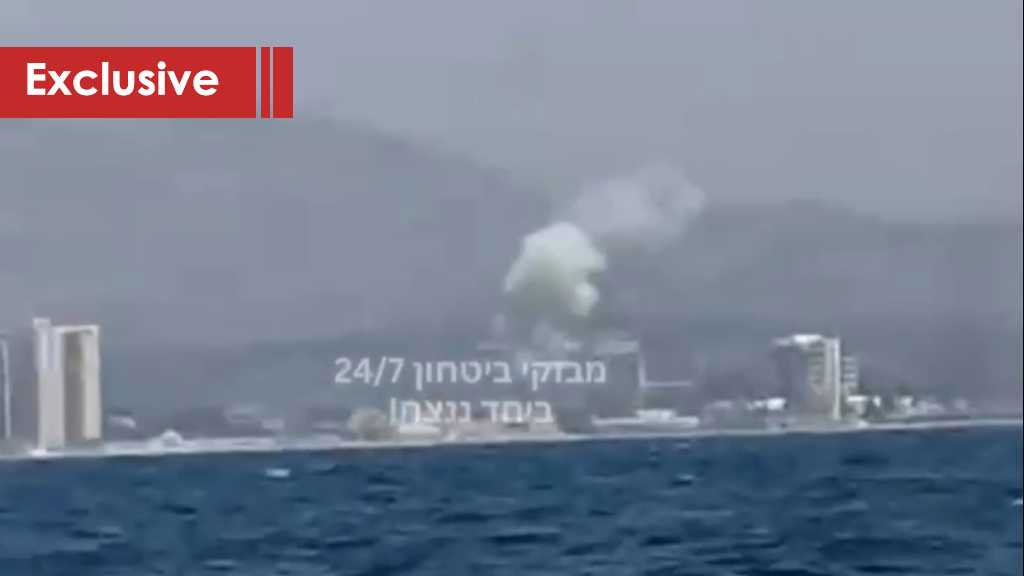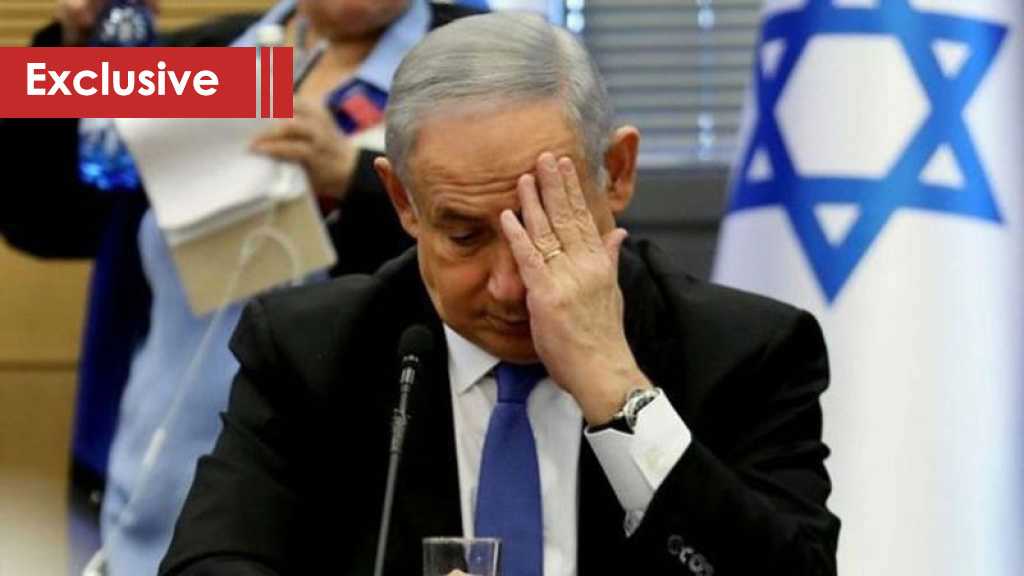
Sheikh Yazbeck to Al-Ahed: We Call All Lebanese to Keep Vigil amid Takfiri Danger
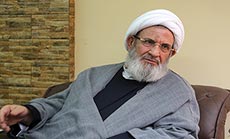
Latifa Husseini
Head of Hizbullah's Juristic Council His Eminence Sheikh Mohammad Yazbeck, builds upon Lebanon's best interest as broaching the internal dossiers.
The ordeal of the kidnapped servicemen by terrorist groups in Arsal drives him to exert multiplied efforts in Bekaa in the name of Hizbullah, to shirk strife that is sought to be fuelled among the citizens there.
Accordingly, the Sheikh moves from one town to another to contain the reactions that might be made to the ordeal of the military hostages; but he sees no difficulty in assuming this responsibility as he reckons on "the wise men in Bekaa."
The Bekaa towns are today enduring a critical stage. This is why the Sheikh calls the Lebanese and Bekaa locals to keep watchful as the danger in the region is all-touching. And, in preservation of the role and prestige of the military institution, the Sheikh confirms that Hizbullah did not interfere, not even for one moment, in the ongoing battle in Arsal.
Uttering confidence in the bravery of the Lebanese army, Sheikh Yazbeck hopes that the military institution would receive the required support that would help it win the battle in Arsal and release the kidnapped. He refuses to depict the Lebanese army as defeated or beaten; instead, he insists on saying, "We want a strong army that makes Lebanon stronger." As to the Takfiri rhetoric attacking the army, he deems them as contributing to turn the others against the military institution.
Moreover, Sheikh Yazbeck sees that fighting ISIS did not need an international coalition, but rather a decision by the states that have formed this terrorist organization to cease arming and funding it, and buying oil from it.
When asked about March 14 camp's assimilating Hizbullah to ISIS, Sheikh Yazbeck smiles, and then simply says, "We are not ISIS and if we were, ISIS wouldn't have sentenced us to death."
According to him, Hizbullah was not taken aback by the fresh blast in Khraibeh, since "the front is open and we must always expect things."
Turning to Lebanon, the Sheikh sees no signs on an imminent election of a new president of the republic, but he hopes the return of former Prime Minister Saad Hariri to the country on the basis of "rapprochement instead of division."
Al-Ahed news site interviewed Sheikh Yazbeck on most recent developments and dossiers on the local and international scenes.
The interview read the following:
The region is today through exceptional times, perhaps with sectarian strife as a headline. How to protect the Islamic nation from this danger?
What we are enduring now has been prepared beforehand. The intransigent powers, on top of which the United States that has greed in the region, have concluded that the sectarian strife in the region was the lethal weapon that would make them realize what they have schemed for. Therefore, if we go down in the annals of time, we see that what is happening comes within this context...Before these schemes, Muslims were living side by side; but it is politics that tears the nation apart through sectarian strife. This is why we are asked to skim through the reasons that have led to such dreadful results that are sapping Islam, in order that we should not allow such schemes to fragment the Arab and Islamic society.
This is the responsibility that is imputed to each one who is concerned with preserving Islamic unity. Politicians, for their part, must assuage their rhetoric in order that the situation should not be crippled any further. They must nay work on spreading union among Muslims, especially that the points of convergence among Muslims are way more than their differences. The weapon being used today to fuel tensions among Muslims must be dealt with building on all what has happened throughout the history of Muslims ever since the days of the Prophet (PBUH). If we are truthful in our belonging to Islam, we must consecrate the prophet's life to counter whoever's seeking to sow strife.
As a Hizbullah official, how do you work on nipping this strife in the bud and facing the Takfiri danger that is today threatening the Islamic nation?
We do work by facing injustice and by containing and understanding the others, as well as by clarifying the current disfiguring of Islam especially what the Takfiris are doing against this religion. In fact, Islam is a religion of mercy not carnage. Moreover, we are working on rectifying the current path to prevent exploiting the religion to kill people.
Turning to the internal arena, Lebanon is now through a critical stage as the ordeal of the military hostages is overweighing the local scene. What is required to end this case and to prevent the martyrdom of additional soldiers?
Power in Lebanon must assume its efficient role and it is able to do so with all the Lebanese by working on releasing the hostages. Negotiations are legitimate just like Sayyed Hassan Nasrallah said. The lives of these soldiers must be saved for they are our sons and youth; they are the ones who form the one fabric in this nation.
The power and all the Lebanese must back the army that should be geared up in order that it should be able to protect the nation and restore stability and security in the country. The security and military institution is the axis that proves coexistence. We have a national army that enjoys a vision and a dogma protecting Lebanon. It unifies all its components. If the military institution is ever harmed, the nation will be in tatters. And, we have seen the families of the kidnapped servicemen in the north, Bekaa, and the various regions, which confirms that unity is indeed apt to quenching sectarian strife.
For their part, the Lebanese people must also provide support for the state. Therefore, we can say that the golden Army-People-Resistance trinity is making inroads in skirting strife and rendering Lebanon capable of protecting itself.
But the situation in Bekaa today is not reassuring. Bekaa is a troubled region amid the tit-for-tat abductions and roads' cutoff. In parallel, you are exerting efforts to contain incidents there. Are you finding it difficult to restrain the families in terms of the military hostages' ordeal?
Pertaining to those tampering with the dignity of people and seeking to block some road or snatch a citizen for ransom and money, we call upon the state to hit with an iron fist and pursue these who have no religion. They are evil to all people. And this is where the responsibility of the state lies. This is inadmissible and we sternly condemn it. The sons of Bekaa are innocent from such deeds.
As to the beheading of martyr soldier Abbas Medlij, we can say that the media contributed to fueling the tension; but we managed to salve the issue and it was easy because we sensed a sort of self-restraint among the families of the kidnapped soldiers and those who stand in solidarity with them. The wise men in Bekaa are also working on dealing with this ordeal. As a result, the situation of the sons of Bekaa and the likely reactions that might occur are under control, despite the tension in the region that normally affects all the Lebanese. This requires that the state and the army end this ordeal so that people can go back to their lives and stability.
In respect of the traded accusations among the families against the backdrop of the military hostages' ordeal and the martyrs, are there really some families who hold the responsibility of the soldiers' beheading?
We heard the father of martyr Mohammad Hamiyye who confirmed that that are noble men from Hujairy family. He mainly meant Sheikh Mustafa Hujairy, holding him responsible for the slaughter of his son considering that he had put himself in this position after he had announced that the servicemen were his guests. The father of the martyr restricts the issue to this extent. In Hizbullah, we call the state to shoulder its responsibility and assume its duty so that the army should be able to free Arsal and the hostages.
But the army hasn't ended the battle yet, why?
Because the army needs capacities, weapons and munitions. We have no doubt in the bravery of the soldiers and the military decision and we hope the army would receive the required support.
In your opinion, did the military operation fail in Arsal, especially that the region is still witnessing activities of the Takfiri groups after the ambush set up by the Lebanese army last week, and we all saw how those involved in the beheading of martyr Abbas Medlij were arrested?
We cannot say this because the army at first was not asked for more than protecting the region. But the gunmen of al-Nusra Front were freely moving in the region until they attacked the military institution; the soldiers were at their outposts before they were taken aback, as part of a scheme concocted beforehand by the others. The army needs capacities and we have seen the military when it had fought until no one was left. This means that the army resisted and remained steadfast defending the people. The army is not defeated and we refuse to depict it as such, because we want it to be a strong army that renders Lebanon stronger. This entails the support and armament by the political class.
What can you say about Hizbullah's role in Arsal battle?
Hizbullah did not interfere in Arsal. We even avoided many issues albeit cars were leaving Arsal to be blown up in Dahiyeh and Bekaa. We have insisted that that the state should prevent the booby-trapped cars by itself so that the matter would not be exploited in an unsound way. So, this has been our stance since the beginning. And our position now is still the same. We can only accost this issue within this vision so that things should not be taken somewhere else. Therefore, the state is the responsible side.
How about what has been disseminated in some media outlets about Hizbullah using jets to bombard ISIS groupings in Arsal outskirts?
We are used to such news. If something happens in New York, it is Hizbullah that is accountable! Media is trying to stir incitement so that they say that the kidnapped are in that spot and the shelling took place from a fighter that only Hizbullah, or Iran or "Israel" owned, for mobilization purposes. This is completion to the strife aiming to allege that Hizbullah does not want to rescue the hostages. We do not approach this matter because we are keen on the hostages' lives. We are even working somewhere else in preservation of their lives.
The army is being attacked on a daily basis and in more than an occasion against the backdrop of the security campaigns the military has leveled in many regions. The attack is noticeably staged by the same people. How do you approach this matter?
The army is a security valve and it was the Takfiri rhetoric that has dragged others to be against the army. We tell those people to mitigate their rhetoric in order to preserve Lebanon, its army and security.
In your opinion, why are ISIS and al-Nusra Front focusing in their statements and threats on the Shia soldiers especially that we've all heard of Ousama Mansour and Shadi Mawlawi group in Tabbaneh, that has called for slaughtering "the rejectionists" among the soldiers?
What can we say to an enemy who is determined to kill our sons because of their religious affiliation, especially amid Fatwas? This matter aims to foment strife. Here, we say to the state that it must shoulder its responsibility because those, whether in Tripoli or Arsal, are seeking strife, while we refuse it. We do not accept that our sons be tampered with.
The situation in Tripoli is just as hazardous. There are groups being formed and that swear loyalty to ISIS and al-Nusra Front. There are also slogans being chanted about the people wanting IS. Has Tripoli become the hostage of the Takfiri groups?
Since the war started in Syria, we said that there was a crippling situation in the north that needed to be treated. But no one listened. And when "the people want IS" slogans are hoisted, the state must mobilize. And now, let everybody knows the reasons that have led us to confront the others outside our borders in defense of our sons and families o=in towns and villages, where the Lebanese were left to their fate. Back then, we were certain that if we did not protect them, the battle would have taken place in Hermel, Bekaa, and even Beirut.
We defended all the Lebanese and we anticipated things. If there is today an anti-ISIS coalition, we were the first to fight this terrorist organization and its subsidiaries. Those who are allying today to fight ISIS were the ones who had created the organization and provided it with funds, weapons, and elements. Therefore, we opted for attacking them before they invaded us, so that we would not be humiliated by them.
Turning to Bekaa, can we reassure its sons that they are protected from the Takfiri danger?
We must tell the Lebanese and the Bekaais to remain vigil because the danger in the region is comprehensive. They must unite in one rank to face the stalking dangers. We stand behind this state; yet if it relinquishes its responsibility, then we must confront who's facing us out of humanity. We do not give up and we do not accept that any hand hit us as long as we are alive! We must be ready so that what happened in Mosul should not take place in our country. And we confirm that we are watchfully vigil and ready; and he who threatens to invade Beirut within hours is a delusional who cannot do anything.
How about Khraibeh blast? In which context do you place it?
Today, the front is open and there are always things to expect, especially that the country is exposed and the others detain capacities. Therefore, we cannot avow that there won't be any other explosion but we are working on preventing it.
Speaking of the international anti-ISIS coalition, do you think it will bear fruit?
Analyses vary and we will wait for some time to test if they are honest. In our opinion, things are easier without fighters and airstrikes. These states had best cease arming and funding ISIS as well as purchasing oil from it.
How does Hizbullah explain the change of position towards ISIS by the states funding Takfiri groups?
This "coup" is to be understood considering the interests of these states that have endeavored to create ISIS to hit the axis of the Resistance in the region. But today they can sense the stalking danger. In fact, ISIS is at the doors of the Gulf if not already inside it. Therefore, these countries mobilized to preserve their interests and not out of concern for the region.
Turning to Lebanon, when will a president of the republic be elected? What is hindering consensus over a national personality who is capable of assuming this responsibility?
A president will be elected when the politicians truthfully intend to choose a new head of the state. Until now, there is no such determination. Nothing harbingers an imminent election of a president. For instance, no meetings are being held for this purpose. We are with an agreement among politicians over the president's election.
The legislative polls are certainly to be put off. Today, there is talk about the extension of the Parliament's mandate. How does Hizbullah view the extension of the internal quandaries?
If we reject the extension, does this mean that it won't take place? Still, we presented our candidacies pursuant to the enforced laws. But there is no agreement over the elections issue. Politicians must assume their responsibility in that respect.
How do you regard the scouting visit of former Prime Minister Saad Hariri to Lebanon and then his swift departure?
We hope that [former Prime Minister] Saad Hariri would return to Lebanon and play his role. We hope that the Lebanese would be brought together. We are with rapprochement and not division. We look forward to Lebanon's interest and we want the Lebanese, among whom Hariri, to get together.
What is your comment on some March 14 figures saying ISIS and Hizbullah are similar?
We say to them that we are not ISIS. If we were similar, ISIS wouldn't have sentenced us to death.
